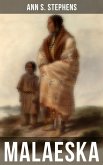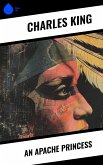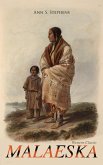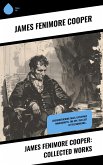In "Malaeska," Ann S. Stephens masterfully intertwines the themes of cultural clash and the quest for identity through the poignant story of a Native American woman navigating the complexities of love and loss. Written in the mid-19th century, the book captures the essence of early American regionalism, employing a rich, descriptive literary style that immerses the reader in the landscapes and social realities of the time. Stephens employs an intricate narrative structure, seamlessly blending dialogue with lush descriptions, which enhances the emotional weight of her characters' struggles amidst the backdrop of a rapidly changing society. Ann S. Stephens, a prominent figure during the antebellum period, was influenced by the burgeoning interest in American folklore and Native American narratives. As one of the early female writers to gain recognition, her own experiences as a mother and her awareness of women's societal roles compel her to explore issues of identity, sovereignty, and resilience in "Malaeska." Her unique perspective as a female author allows for a nuanced portrayal of her characters, challenging stereotypes and offering a more authentic representation of Native American life. This compelling novel is highly recommended for readers interested in themes of cultural intersections, historical narratives, and women's literary contributions. "Malaeska" is not just a story of a single woman; it is a reflection of the American identity that invites readers to engage deeply with the complexities of belonging and the fight for autonomy.
Dieser Download kann aus rechtlichen Gründen nur mit Rechnungsadresse in A, B, BG, CY, CZ, D, DK, EW, E, FIN, F, GR, HR, H, IRL, I, LT, L, LR, M, NL, PL, P, R, S, SLO, SK ausgeliefert werden.









